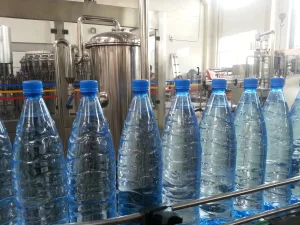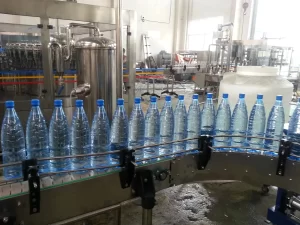Every bottle that leaves your plant represents your brand, product quality, and operational expertise. Selecting the wrong bottle material can lead to deformed bottles, breakages, hygiene risks, and downtime, impacting both efficiency and reputation.
Choosing the right material is not just packaging—it affects machine performance, product safety, and consumer perception.
Why Bottle Material Can Make or Break Your Plant
Bottles that deform, crack, or leak create cascading problems such as line stoppages, rejected products, and costly delays. The material you choose directly affects:
-
Filling accuracy
-
Machine efficiency
-
Hygiene standards
-
Brand image
-
Sustainability compliance
Expert Insight: A well-chosen bottle material is the foundation for a smooth, high-quality production line.
Quick Reference: Bottle Material Comparison
| Material | Advantages | Challenges | Best For |
|---|---|---|---|
| PET | Lightweight, recyclable, fast production | Sensitive to heat, can deform under pressure | Large-scale commercial plants |
| Glass | Premium appearance, taste protection | Fragile, heavier | Premium bottled water brands |
| Eco-Friendly / Biodegradable | Environmentally responsible, marketable | Heat-sensitive, requires careful handling | Green-conscious brands |
| HDPE / Plastic | Durable, chemical-resistant | Less premium perception | Industrial or high-durability lines |
Tip from Metson Machines: Align bottle material with line speed, machine specifications, and brand positioning for maximum efficiency.
5 Key Questions Before You Decide
-
Can the filling line handle this material?
Our adjustable heads support PET, glass, and eco-friendly bottles. -
Will it maintain fill accuracy?
Flexible or deformable bottles need sensor-assisted monitoring for consistent volume. -
Does it meet hygiene standards?
Materials like glass or biodegradable bottles may require extra sterilization; CIP systems maintain safety. -
Does it align with sustainability goals?
Choose materials that reduce environmental impact while meeting regulations. -
What is the long-term ROI?
Higher-quality bottles may increase initial cost but reduce downtime, waste, and operational headaches.
Practical Manufacturer Tips
-
Conduct pilot batches before full-scale production
-
Maintain spare parts for fragile or flexible bottle lines
-
Train operators on careful handling of delicate bottles
-
Use sensors to detect misalignment or deformation
-
Work with a trusted Mineral Water Plant Machine Manufacturer like Metson Machines for precise machine adjustments
Insight: These practices are based on years of experience optimizing hundreds of filling lines worldwide.
Real-Life Examples
PET Line Optimization
-
Issue: Deformation at 18,000 bottles/day
-
Solution: Adjusted pressure, torque, and sensor monitoring
-
Result: Zero deformation, smooth production, reduced waste
Glass Line Success
-
Issue: Frequent breakages
-
Solution: Soft guides, torque-controlled capping, sensor-assisted detection
-
Result: No breakages, increased throughput
Why Partner With Metson Machines
-
Over a decade of experience as a trusted Mineral Water Filling Machine Manufacturer
-
Machines engineered for PET, glass, and eco-friendly bottles
-
Complete support: installation, training, preventive maintenance
-
Ensures precision, hygiene, and smooth operations
Insight: Choosing the right bottle is easier when backed by real manufacturer expertise and practical guidance.
The Impact of Your Choice
-
Optimize Production: Fewer stoppages, accurate fills, smoother lines
-
Protect Product Quality: Maintain taste, hygiene, and presentation
-
Enhance Brand Reputation: High-quality bottles build consumer trust
-
Sustainable Operations: Eco-friendly options reduce environmental footprint
-
Maximize ROI: Less waste, fewer rejects, improved profitability
Make the smart choice today with guidance from Metson Machines, your trusted Mineral Water Filling Machine Manufacturer, and set your plant up for consistent quality, efficiency, and long-term success.



